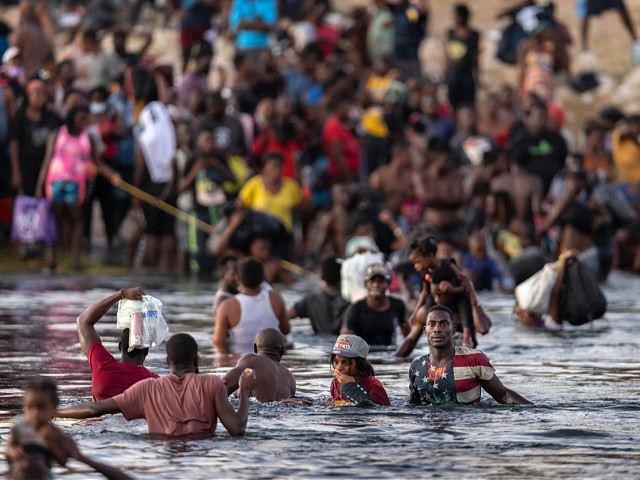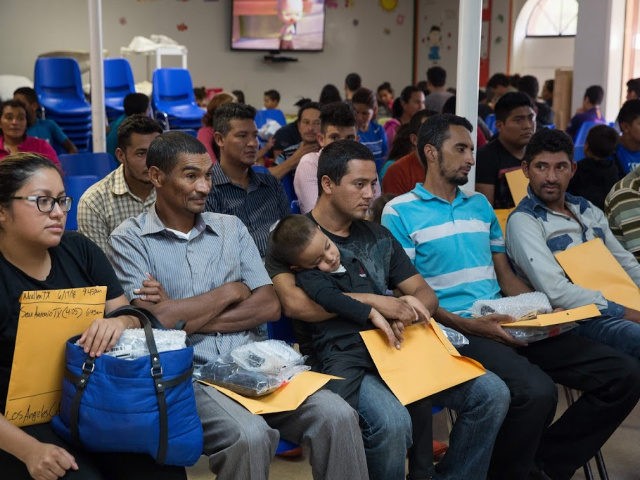The White House on Wednesday defended the decision to apply catch and release protocols to undocumented Haitian migrants entering the United States, describing the practice as an “alternative to detention.”
White House press secretary Jen Psaki used the updated description when asked by reporters asked why migrants from Haiti were being released into the country and not sent back immediately on expulsion fights to their home country.
“Individuals who are not immediately removed are either placed in an alternative to detention or transported to an ICE facility,” Psaki replied.
She ignored concerns voiced by a reporter the practice would only encourage more Haitians to cross the Southern border into the country.

Haitian migrants cross the Rio Grande to get food and supplies near the Del Rio-Acuna Port of Entry in Ciudad Acuña, Coahuila state, Mexico. The mayor of Del Rio, Texas declared a state of emergency on September 17, 2021 after more than 10,000 undocumented migrants, many of them Haitians, poured into the border city in a fresh test of President Joe Biden’s immigration policy. (PAUL RATJE/AFP via Getty)

Immigrants, mostly from Haiti gather on the bank of the Rio Grande on September 19, 2021 in Ciudad Acuna, Mexico, across the border from Del Rio, Texas. (John Moore/Getty Images)
Over 15,000 migrants, mostly from Haiti, gathered in a makeshift camp under the international bridge in Del Rio, Texas in the last week.
Psaki said that the Department of Homeland Security was continuing to expel some migrants using the Title 42 authorities developed by former President Donald Trump to help fight the coronavirus pandemic.
But she admitted there were many Haitian migrants who “cannot be expelled” and would be sent to “alternative to detention.” She also noted that there might not be flights available for DHS to send the migrants home.
“If there isn’t a flight ready yet, those individuals may be placed in alternatives to detention,” she said.
Catch-and-release is the practice of federal authorities apprehending migrants crossing the porous border, taking their information, before releasing them into the country with a notice to return for an asylum hearing.
Video Source: Randy ClarkFormer President Donald Trump ended catch and release by creating his “Remain in Mexico” policy for migrants claiming asylum, slowing the number of migrants crossing into the United States.
President Joe Biden ended the policy when he took office, describing it as “inhumane.”
After days of stalling, the Department of Homeland Security finally released numbers late Wednesday about the number of migrants processed at the border.
Of the over 15,000 that gathered at camp, 1,401 have been sent back to Haiti, 3,206 have been moved out of the Del Rio sector, and fewer than 5,000 remain in the camp near the bridge.

COMMENTS
Please let us know if you're having issues with commenting.